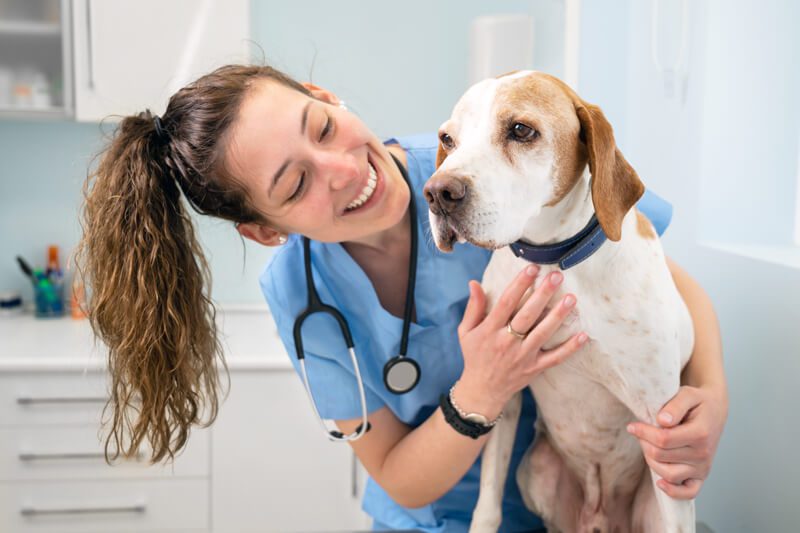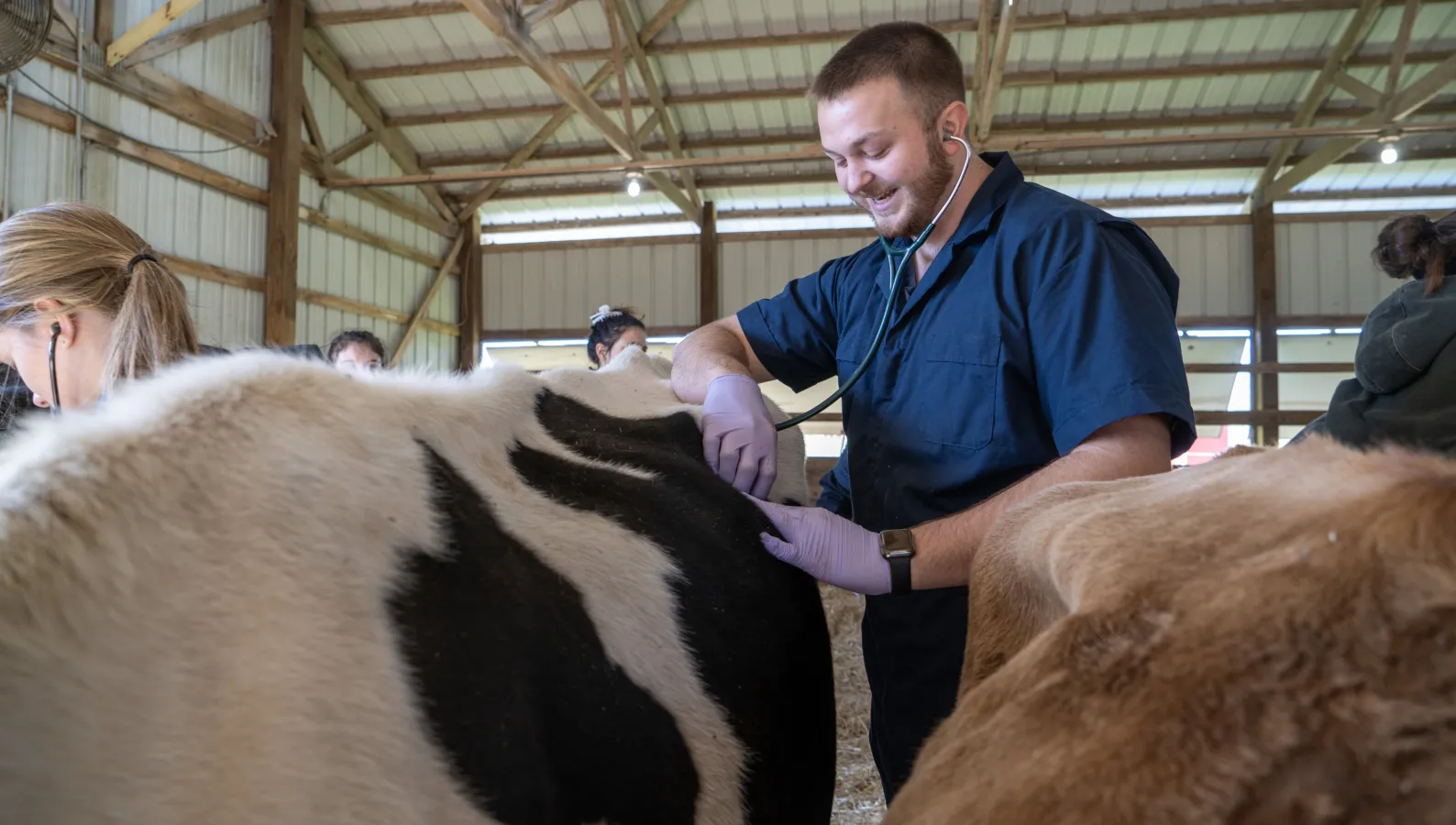Pet Cancer Surgery broken down for concerned pet owners
Wiki Article
Comprehensive Overview to the Solutions Provided by a Veterinary Oncologist
Vet oncology includes a broad selection of services intended at identifying and dealing with cancer cells in pet dogs. Veterinary Oncologist. Oncologists employ innovative diagnostic techniques and offer numerous therapy choices tailored to every animal's demands. They likewise prioritize supportive treatment and offer valuable sources for animal proprietors. Understanding these services is necessary for making educated choices. What particular aspects of vet oncology can especially affect an animal's therapy trip?Comprehending Veterinary Oncology
Vet oncology is a specialized area focused on identifying and dealing with cancer in animals. This technique incorporates a variety of approaches, from medical therapies such as chemotherapy and immunotherapy to medical interventions intended at getting rid of lumps. Vet oncologists are educated to recognize the unique manifestations of cancer in various types, allowing them to customize treatment strategies to private patients.Along with standard therapies, vet oncology stresses encouraging care, which plays an essential role in boosting the lifestyle for damaged animals. This includes pain monitoring, dietary assistance, and palliative care alternatives. Cooperation with pet dog owners is crucial, as they are important to decision-making regarding their animals' therapy courses. As research breakthroughs, vet oncology proceeds to advance, offering brand-new hope and enhanced end results for family pets identified with cancer. Overall, this area is fundamental for attending to the complexities of cancer cells in companion animals.
Advanced Diagnostic Techniques
Advanced analysis strategies play a vital function in veterinary oncology, giving vital understandings into the existence and level of cancer cells in pets. Imaging modalities such as ultrasound, CT scans, and MRI are typically used to envision lumps and analyze their attributes. Furthermore, biopsy procedures are necessary for acquiring cells examples, permitting for conclusive medical diagnosis and tailored therapy plans.Imaging Modalities Utilized
Imaging techniques play an important duty in the medical diagnosis and management of cancer cells in pets. Veterinary oncologists use various sophisticated imaging strategies to examine tumor size, visibility, and metastasis. Radiography, or X-rays, offers a preliminary sight of bone and upper body conditions, while ultrasound provides real-time imaging of soft cells, enabling comprehensive assessment of internal organs. Calculated tomography (CT) enhances visualization of intricate anatomical structures and enables 3D restorations, aiding in exact tumor localization. Magnetic vibration imaging (MRI) is invaluable for soft tissue distinction, specifically in mind tumors. Additionally, nuclear medication strategies such as positron emission tomography (PET) assistance determine metabolic task within lumps. Jointly, these modalities enhance diagnostic precision, guiding efficient therapy techniques for oncological individuals.Biopsy Treatments Explained
Complying with the first assessment with imaging methods, obtaining a conclusive diagnosis commonly requires tissue sampling via biopsy procedures. Veterinary oncologists make use of numerous biopsy methods based upon the tumor's area and features. Fine needle ambition (FNA) is a minimally intrusive method that extracts cells for cytological assessment, perfect for shallow masses. Core needle biopsies supply bigger tissue samples and are useful for much deeper lumps, permitting for histopathological evaluation. Surgical biopsies include excising a part or the whole tumor, helping with comprehensive assessment. These procedures not just validate the existence of cancer yet likewise help determine its type and grade, guiding treatment choices. Each biopsy strategy is chosen meticulously to stabilize analysis accuracy with patient safety and comfort.Treatment Alternatives for Cancer in Pet dogs
When a pet dog is detected with cancer cells, a selection of therapy choices appear to help boost and take care of the disease lifestyle. Veterinary oncologists usually recommend a multidisciplinary technique tailored to the private family pet's requirements, which might include surgical treatment, radiation treatment, immunotherapy, or alternative therapies.Surgical treatment is usually employed to eliminate lumps and damaged tissues, potentially causing complete remission in some cases. Radiation treatment intends to damage and target cancer cells, minimizing lump dimension and minimizing signs - Board Certified Veterinary Oncologist. Immunotherapy utilizes the animal's immune system to fight cancer cells better, while alternative treatments could include acupuncture or organic supplements to sustain total health
Each therapy option carries its own advantages and risks, and veterinary oncologists work very closely with pet dog proprietors to make a detailed strategy that aligns with the pet dog's particular diagnosis and the owner's desires. The utmost objective is to boost the pet dog's comfort and top quality of life throughout their cancer journey.
Chemotherapy for Animals
Chemotherapy is an usual therapy alternative for family pets identified with cancer and is frequently used in conjunction with various other treatments described by veterinary oncologists. This treatment involves the management of details medicines made to target and ruin cancer cells, consequently reducing lump size and stopping the spread of the illness. Veterinary oncologists tailor chemotherapy protocols based upon the sort of cancer, the pet's total health, and the desired therapy end result.Negative effects can happen, as these drugs might additionally impact healthy cells. Common responses include nausea, vomiting, and short-term adjustments in hunger - Board Certified Veterinary Oncologist. Vet oncologists are furnished to manage these side results efficiently, making certain the animal's convenience throughout the treatment procedure. Routine tracking via blood examinations and follow-up consultations is important to examine the pet dog's response to radiation treatment and make necessary adjustments. Eventually, radiation treatment can supply considerable benefits, boosting the lifestyle for family pets facing cancer medical diagnoses

Radiation Treatment in Veterinary Medicine
Radiation treatment functions as a reliable treatment option for animals detected with localized tumors, supplying a targeted technique to cancer cells management. This method utilizes high-energy radiation to harm the DNA of cancer cells, inhibiting their capacity to proliferate. It is specifically beneficial for lumps that are not open to medical removal or for instances where surgical treatment might not be feasible because of the tumor's area.Vet oncologists customize radiation protocols based upon tumor location, type, and dimension, along with the animal's general health. Therapy can be supplied by means of external beam radiation or brachytherapy, each with distinct advantages. Generally, multiple sessions are called for to take full advantage of performance while decreasing negative effects.
Although pet dogs might experience short-lived reactions such as skin inflammation, the general purpose is to reduce tumors and ease symptoms, ultimately improving the family pet's diagnosis and lifestyle. Appropriately, radiation treatment plays an important role in extensive cancer care.
Palliative Care and Lifestyle
Palliative care in vet oncology concentrates on boosting the top quality of life for pet dogs encountering incurable health problems, making certain convenience and self-respect in their final days. This specific method prioritizes pain management, signs and symptom control, and psychological assistance. Veterinary oncologists evaluate each animal's individual demands, customizing interventions to relieve pain and enhance overall health.Techniques might include administering drugs for discomfort relief, managing nausea, and addressing various other stressful signs. Additionally, dietary support is frequently given to maintain toughness and improve appetite. The psychological aspect of palliative treatment is equally crucial; creating a tranquil setting helps in reducing anxiousness for both family pet and owner.
Eventually, the goal of palliative care is to permit family pets to enjoy their staying time with as much joy and self-respect as possible. By concentrating on comfort and lifestyle, veterinary oncologists play a crucial role in making sure that pet dogs and their family members browse this challenging trip with concern and understanding.
Assistance for Animal Owners During Therapy

Psychological Assistance for Proprietors
Charting the emotional landscape during a pet dog's cancer therapy can be a frustrating experience for owners. The unpredictability surrounding medical diagnosis and prognosis can cause feelings of helplessness, anxiousness, and sadness. Veterinary oncologists identify the importance of emotional support and frequently give support to aid proprietors navigate this tough trip. Interaction is important; talking about therapy alternatives and potential end results can minimize some anxieties. Additionally, providing peace of mind that emotional actions stand fosters an encouraging setting. Many oncology clinics may likewise suggest support groups or therapy solutions customized for pet dog proprietors, helping with shared experiences. Motivating proprietors to prioritize self-care during this time around is crucial, as their psychological wellness directly influences their pet's convenience and overall therapy experience.
Resources and Educational Materials
Steering via the complexities of a pet dog's cancer cells treatment can be intimidating for proprietors, making accessibility to trusted sources and instructional materials vital. Vet oncologists frequently supply an array of handouts, brochures, and online materials that describe therapy alternatives, prospective side results, and treatment techniques. These resources aid demystify the procedure and empower animal proprietors to make educated decisions. In addition, lots of oncology facilities supply access to sustain teams and forums where proprietors can get in touch with others facing comparable challenges, cultivating a sense of neighborhood. Educational workshops and webinars carried out by vet specialists additionally enhance understanding, making certain that owners are well-equipped to navigate their family pet's journey via cancer cells treatment with confidence and understanding.Regularly Asked Concerns
Exactly How Can I Prepare My Pet for a Vet Oncology Check Out?
Preparing a pet for a vet oncology go to involves celebration clinical records, keeping in mind symptoms, and making sure the animal is comfy. A calm temperament and acquainted things can assist relieve anxiety throughout the visit.What Are the Indicators My Pet May Have Cancer Cells?
Indicators that a pet might have cancer consist of inexplicable fat burning, relentless vomiting or looseness of the bowels, uncommon swellings or swellings, lethargy, adjustments in hunger, difficulty breathing, and alterations in behavior. Trigger veterinary focus is important.Just How Can I Support My Animal Emotionally Throughout Therapy?
Supporting a family pet mentally during treatment involves giving comfort, maintaining regimens, offering gentle affection, and making sure a calm setting. Involving in quiet play and normal companionship assists alleviate anxiety and cultivates a complacency.Exist Alternative Treatments for Pets With Cancer?
Different therapies for pets with cancer consist of acupuncture, herbal treatments, and dietary support. These methods may enhance standard therapies, promoting general health. Consulting with a vet is vital for secure and effective assimilation of alternate therapies.What Costs Should I Expect for Vet Oncology Providers?
The anticipated expenses for vet oncology solutions can differ considerably, frequently affected by diagnostics, therapies, and ongoing treatment. Pet owners should plan for expenses ranging from appointments to specialized therapies, showing the intricacy of cancer monitoring.Partnership with family pet proprietors is essential, as they are essential to decision-making regarding their animals' therapy paths. Each treatment option brings its own benefits and risks, and veterinary oncologists function very closely with pet dog owners to design a detailed strategy that straightens with the pet dog's specific diagnosis and the proprietor's desires. Animals might experience short-lived responses such as skin irritability, the overall purpose is to diminish lumps and ease signs and symptoms, ultimately enhancing the pet's prognosis and top quality of life. Assistance for family pet owners throughout therapy is essential in steering through the emotional difficulties connected with a pet's cancer medical diagnosis. Preparing a pet for a veterinary oncology see includes celebration clinical documents, keeping in mind signs, and making certain the pet dog is comfortable.
Report this wiki page